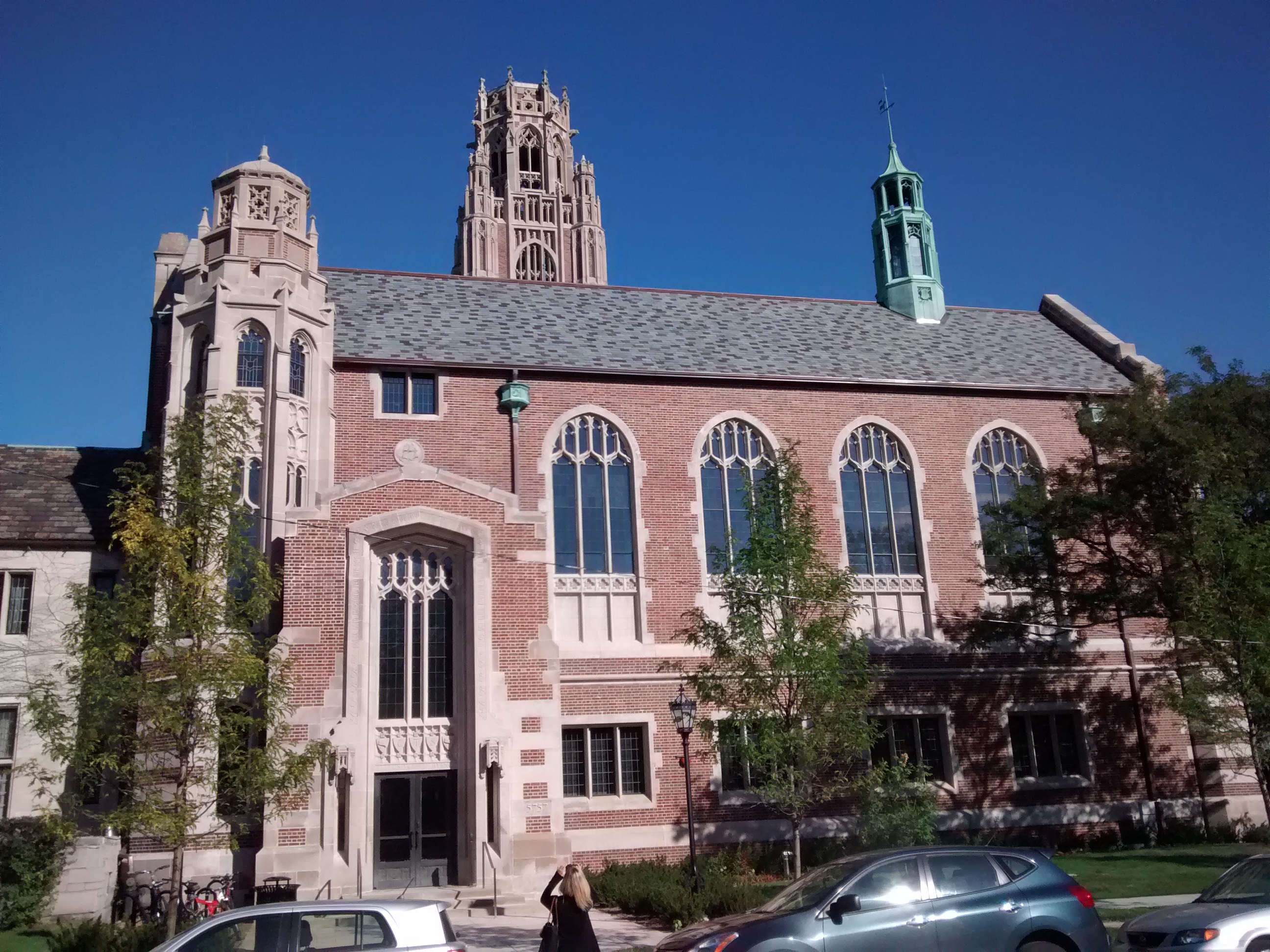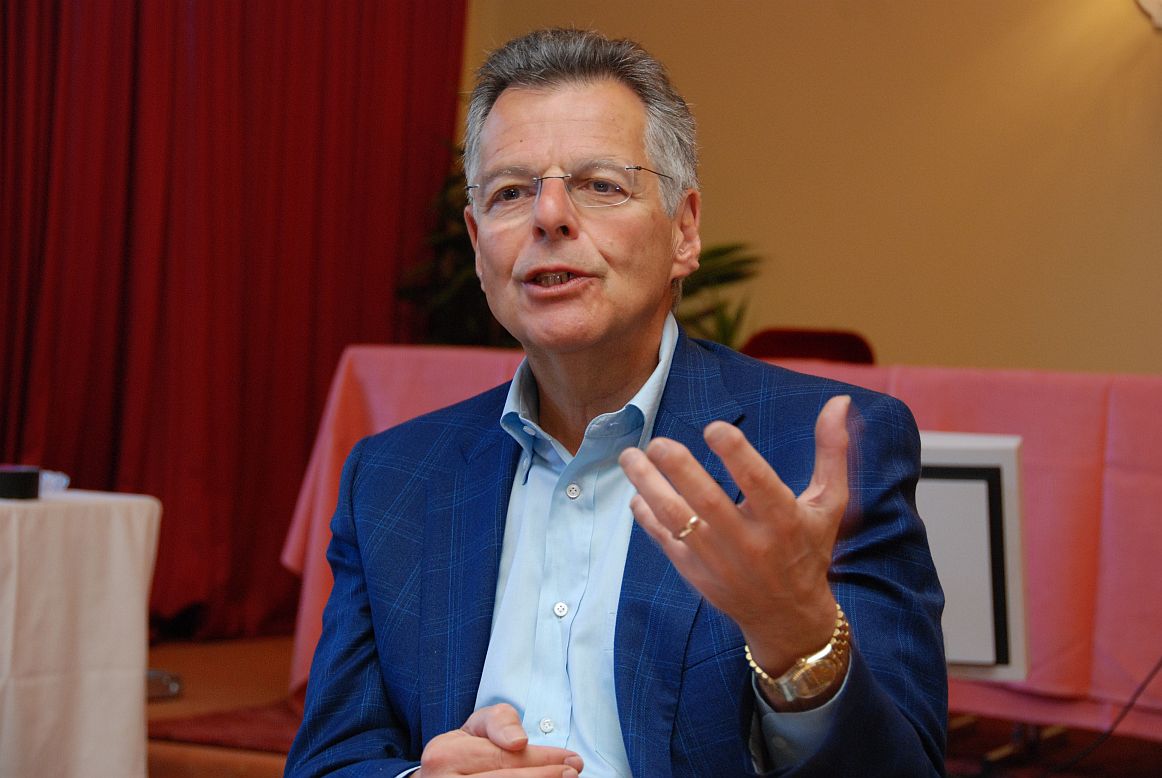|
Merton H. Miller
Merton Howard Miller (May 16, 1923 – June 3, 2000) was an American economist, and the co-author of the Modigliani–Miller theorem (1958), which proposed the irrelevance of debt-equity structure. He shared the Nobel Memorial Prize in Economic Sciences in 1990, along with Harry Markowitz and William F. Sharpe. Miller spent most of his academic career at the University of Chicago's Booth School of Business. Biography Early years Miller was born in Boston, Massachusetts to Jewish parents Sylvia and Joel Miller, a housewife and attorney. He attended Harvard University as an undergraduate student. He worked during World War II as an economist in the division of tax research of the Treasury Department, and received a Doctor of Philosophy, Ph.D. in economics from Johns Hopkins University, 1952. His first academic appointment after receiving his doctorate was Visiting Assistant Lecturer at the London School of Economics. Career In 1958, at Carnegie Institute of Technology (now Carneg ... [...More Info...] [...Related Items...] OR: [Wikipedia] [Google] [Baidu] |
Chicago School Of Economics
The Chicago school of economics is a neoclassical school of economic thought associated with the work of the faculty at the University of Chicago, some of whom have constructed and popularized its principles. Milton Friedman and George Stigler are considered the leading scholars of the Chicago school. Chicago macroeconomic theory rejected Keynesianism in favor of monetarism until the mid-1970s, when it turned to new classical macroeconomics heavily based on the concept of rational expectations. The freshwater–saltwater distinction is largely antiquated today, as the two traditions have heavily incorporated ideas from each other. Specifically, new Keynesian economics was developed as a response to new classical economics, electing to incorporate the insight of rational expectations without giving up the traditional Keynesian focus on imperfect competition and sticky wages. Chicago economists have also left their intellectual influence in other fields, notably in pioneerin ... [...More Info...] [...Related Items...] OR: [Wikipedia] [Google] [Baidu] |
Myron Scholes
Myron Samuel Scholes ( ; born July 1, 1941) is a Canadian-American financial economist. Scholes is the Frank E. Buck Professor of Finance, Emeritus, at the Stanford Graduate School of Business, Nobel Laureate in Economic Sciences, and co-originator of the Black–Scholes options pricing model. Scholes is currently the chairman of the Board of Economic Advisers of Stamos Capital Partners. Previously he served as the chairman of Platinum Grove Asset Management and on the Dimensional Fund Advisors board of directors, American Century Mutual Fund board of directors and the Cutwater Advisory Board. He was a principal and limited partner at Long-Term Capital Management and a managing director at Salomon Brothers. Other positions Scholes held include the Edward Eagle Brown Professor of Finance at the University of Chicago, senior research fellow at the Hoover Institution, director of the Center for Research in Security Prices, and professor of finance at MIT's Sloan School of Management ... [...More Info...] [...Related Items...] OR: [Wikipedia] [Google] [Baidu] |
Arbitrage
In economics and finance, arbitrage (, ) is the practice of taking advantage of a difference in prices in two or more markets; striking a combination of matching deals to capitalise on the difference, the profit being the difference between the market prices at which the unit is traded. When used by academics, an arbitrage is a transaction that involves no negative cash flow at any probabilistic or temporal state and a positive cash flow in at least one state; in simple terms, it is the possibility of a risk-free profit after transaction costs. For example, an arbitrage opportunity is present when there is the possibility to instantaneously buy something for a low price and sell it for a higher price. In principle and in academic use, an arbitrage is risk-free; in common use, as in statistical arbitrage, it may refer to ''expected'' profit, though losses may occur, and in practice, there are always risks in arbitrage, some minor (such as fluctuation of prices decreasing profit ... [...More Info...] [...Related Items...] OR: [Wikipedia] [Google] [Baidu] |
Cost Of Capital
In economics and accounting, the cost of capital is the cost of a company's funds (both debt and equity), or from an investor's point of view is "the required rate of return on a portfolio company's existing securities". It is used to evaluate new projects of a company. It is the minimum return that investors expect for providing capital to the company, thus setting a benchmark that a new project has to meet. Basic concept For an investment to be worthwhile, the expected return on capital has to be higher than the cost of capital. Given a number of competing investment opportunities, investors are expected to put their capital to work in order to maximize the return. In other words, the cost of capital is the rate of return that capital could be expected to earn in the best alternative investment of equivalent risk; this is the opportunity cost of capital. If a project is of similar risk to a company's average business activities it is reasonable to use the company's average cost ... [...More Info...] [...Related Items...] OR: [Wikipedia] [Google] [Baidu] |
Corporate Finance
Corporate finance is the area of finance that deals with the sources of funding, the capital structure of corporations, the actions that managers take to increase the Value investing, value of the firm to the shareholders, and the tools and analysis used to allocate financial resources. The primary goal of corporate finance is to Shareholder value, maximize or increase valuation (finance), shareholder value. Correspondingly, corporate finance comprises two main sub-disciplines. Capital budgeting is concerned with the setting of criteria about which value-adding projects should receive investment funding, and whether to finance that investment with ownership equity, equity or debt capital. Working capital management is the management of the company's monetary funds that deal with the short-term business operations, operating balance of current assets and Current liability, current liabilities; the focus here is on managing cash, inventory, inventories, and short-term borrowing an ... [...More Info...] [...Related Items...] OR: [Wikipedia] [Google] [Baidu] |
Franco Modigliani
Franco Modigliani (18 June 1918 – 25 September 2003) was an Italian-American economist and the recipient of the 1985 Nobel Memorial Prize in Economics. He was a professor at University of Illinois at Urbana–Champaign, Carnegie Mellon University, and MIT Sloan School of Management. Early life and education Modigliani was born on 18 June 1918 in Rome, Lazio, Italy, to the Jewish family of a pediatrician father and a voluntary social worker mother."Franco Modigliani" by Daniel B. Klein and Ryan Daza, inThe Ideological Migration of the Economics Laureates, ''Econ Journal Watch'', 10(3), September 2013, pp. 472-293 He entered university at the age of seventeen, enrolling in the faculty of Law at the Sapienza University of Rome.Parisi, Daniela (2005) "Five Italian Articles Written by the Young Franco Modigliani (1937–1938)", ''Rivista Internazional di Scienze Sociali'', 113(4), pp. 555–557 (in language) In his second year at Sapienza, his submission to a nationwide conte ... [...More Info...] [...Related Items...] OR: [Wikipedia] [Google] [Baidu] |
Carnegie Institute Of Technology
Carnegie Mellon University (CMU) is a private research university in Pittsburgh, Pennsylvania. One of its predecessors was established in 1900 by Andrew Carnegie as the Carnegie Technical Schools; it became the Carnegie Institute of Technology in 1912 and began granting four-year degrees in the same year. In 1967, the Carnegie Institute of Technology merged with the Mellon Institute of Industrial Research, founded in 1913 by Andrew Mellon and Richard B. Mellon and formerly a part of the University of Pittsburgh. Carnegie Mellon University has operated as a single institution since the merger. The university consists of seven colleges and independent schools: Carnegie Mellon College of Engineering, The College of Engineering, Carnegie Mellon College of Fine Arts, College of Fine Arts, Dietrich College of Humanities and Social Sciences, Mellon College of Science, Tepper School of Business, Heinz College, Heinz College of Information Systems and Public Policy, and the Carnegie Mell ... [...More Info...] [...Related Items...] OR: [Wikipedia] [Google] [Baidu] |
Doctor Of Philosophy
A Doctor of Philosophy (PhD, Ph.D., or DPhil; Latin: or ') is the most common Academic degree, degree at the highest academic level awarded following a course of study. PhDs are awarded for programs across the whole breadth of academic fields. Because it is an earned research degree, those studying for a PhD are required to produce original research that expands the boundaries of knowledge, normally in the form of a Thesis, dissertation, and defend their work before a panel of other experts in the field. The completion of a PhD is often a requirement for employment as a university professor, researcher, or scientist in many fields. Individuals who have earned a Doctor of Philosophy degree may, in many jurisdictions, use the title ''Doctor (title), Doctor'' (often abbreviated "Dr" or "Dr.") with their name, although the proper etiquette associated with this usage may also be subject to the professional ethics of their own scholarly field, culture, or society. Those who teach at ... [...More Info...] [...Related Items...] OR: [Wikipedia] [Google] [Baidu] |
World War II
World War II or the Second World War, often abbreviated as WWII or WW2, was a world war that lasted from 1939 to 1945. It involved the vast majority of the world's countries—including all of the great powers—forming two opposing military alliances: the Allies and the Axis powers. World War II was a total war that directly involved more than 100 million personnel from more than 30 countries. The major participants in the war threw their entire economic, industrial, and scientific capabilities behind the war effort, blurring the distinction between civilian and military resources. Aircraft played a major role in the conflict, enabling the strategic bombing of population centres and deploying the only two nuclear weapons ever used in war. World War II was by far the deadliest conflict in human history; it resulted in 70 to 85 million fatalities, mostly among civilians. Tens of millions died due to genocides (including the Holocaust), starvation, ma ... [...More Info...] [...Related Items...] OR: [Wikipedia] [Google] [Baidu] |
Booth School Of Business
The University of Chicago Booth School of Business (Chicago Booth or Booth) is the graduate business school of the University of Chicago. Founded in 1898, Chicago Booth is the second-oldest business school in the U.S. and is associated with 10 Nobel laureates in the Economic Sciences, more than any other business school in the world. The school has the third-largest endowment of any business school. Notable Chicago Booth alumni include James O. McKinsey, founder of McKinsey & Company; Susan Wagner, co-founder of Blackrock; Eric Kriss, co-founder of Bain Capital; Satya Nadella, current CEO of Microsoft; and other current and former CEOs of Fortune 500 companies such as Allstate Insurance, Booz Allen Hamilton, Cargill, Chevron, Credit Suisse, Dominos, Goldman Sachs, IBM, Morgan Stanley, Morningstar, PIMCO, and Reckitt Benckiser. History The University of Chicago Booth School of Business traces its roots back to 1898 when university faculty member James Laurence Laughlin ... [...More Info...] [...Related Items...] OR: [Wikipedia] [Google] [Baidu] |
William F
William is a male given name of Germanic origin.Hanks, Hardcastle and Hodges, ''Oxford Dictionary of First Names'', Oxford University Press, 2nd edition, , p. 276. It became very popular in the English language after the Norman conquest of England in 1066,All Things William"Meaning & Origin of the Name"/ref> and remained so throughout the Middle Ages and into the modern era. It is sometimes abbreviated "Wm." Shortened familiar versions in English include Will, Wills, Willy, Willie, Bill, and Billy. A common Irish form is Liam. Scottish diminutives include Wull, Willie or Wullie (as in Oor Wullie or the play ''Douglas''). Female forms are Willa, Willemina, Wilma and Wilhelmina. Etymology William is related to the given name ''Wilhelm'' (cf. Proto-Germanic ᚹᛁᛚᛃᚨᚺᛖᛚᛗᚨᛉ, ''*Wiljahelmaz'' > German ''Wilhelm'' and Old Norse ᚢᛁᛚᛋᛅᚼᛅᛚᛘᛅᛋ, ''Vilhjálmr''). By regular sound changes, the native, inherited English form of the name shoul ... [...More Info...] [...Related Items...] OR: [Wikipedia] [Google] [Baidu] |




